Issue Archives
December 2008
Welcome to the December issue of The Digital Journalist.
by Dirck Halstead
This month we have three dispatches by photographers Sean Gallagher, Justin Mott and Tarik Tinazay. In addition, we reprint a first-person account from The Associated Press by Jerome Delay who is a friend of Dispatches and i>The Digital Journalist.
by Marianne Fulton
I noticed that landscape photographers are often forced to use a gradient filter to compensate for a bright sky and relatively dark foreground. Why can't this be done digitally in camera? It seems to me that if the camera were told to look for a horizontally placed light/dark line that it could apply some exposure compensation with no need for a filter. In fact, the latest Canon 50D has some exposure compensation so perhaps this could be developed (no pun intended) to simulate a gradient filter.
by Chuck Westfall
With all the optimism that now surrounds the war in Iraq, what the military refers to as "success" because of the recent surge, why have we not heard that old saw about Vietnam: "the light at the end of the tunnel"?
by Ron Steinman
It's not as if we woke up one morning and editorial rates had imploded and contracts suddenly turned into one-sided suicide pacts. No, we did it one assignment and one contract at a time. Every time a photographer agreed to a lowball, rights-grabbing contract it became just a bit harder for the next photographer to make a good deal.
by Mark Loundy
"It's too bad. If this were a decade ago I would have said, 'give the kid an assignment' and sent you down the hall with something. Then I would have sent you upstairs to Life magazine; they would have made you an apprentice and you'd be on your way to a career. Now, I've got nothing to give you."
by Joshua Wolfe
The Canon and Nikon SLRs, like many of us who have been involved in photojournalism for a few years, have gained weight.
by Bill Pierce
I do not believe that in America we pay enough attention to the AIDS scourge which is alive and destructive everywhere in Africa. The horror is such that many people probably take the tack that it is better not to see or hear the truth.
by Ron Steinman
At a time when our images travel instantly from our cameras directly to clients and potential clients all over the world, some of us remember when image delivery was not so fast.
by Dennis Brack
In 1928, a campaign slogan for presidential candidate Herbert Hoover promised "a chicken in every pot." However, Hoover's memorable promise of prosperity preceded the stock market crash of 1929, followed by the Great Depression.
by Beverly Spicer
KIWANJA, Congo – Eleven-year-old Protegee carried her sobbing niece on her back as they searched for relatives in a sea of people in eastern Congo.
by Jerome Delay
in sub-Saharan Africa for a decade, all under tough conditions, most often with little pay. Imagine having that much passion, having such a powerful inner need to tell the stories that need telling no matter the obstacles.
by David Elliot Cohen
It does not matter how many badly wounded people you might have seen in the field. After all, they unfortunately are part of the horrible scenes of any devastating earthquake, bombing or air strike.
by Tarik Tinazay
It was 5 a.m. and the temperature was about –20 degrees C. As I stood shivering in the darkness down a back alley in the Mongolian capital of Ulaanbaatar, I was starting to believe the claims that this was indeed the coldest capital city in the world. This alleged fact, however, wasn't why I was there.
by Sean Gallagher
Friday, Oct. 30, I spent the day inside as the pounding rain kindly pointed out the weaknesses in my poorly constructed home in Hanoi
by Justin Mott
References to the "Great Depression" of the 1930s shadow us now as we face another great financial crisis. But what do we really know of that difficult time, before the ken of most now living? Statistics may defy our imagination but photography of the period conveys some of the harsh realities that many lived.
by J.B. Colson
Few times in my life have I cried from joy. The day after the election of Barack Obama as President of the United States, I was returning to Harlem, where I live in NYC, on the uptown #3 subway
by Peter Turnley
|
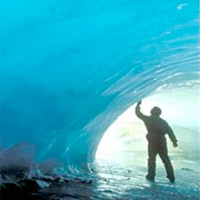
What Matters

The Content of Our Character
|
November 2008
Welcome to the November issue of The Digital Journalist.
by Dirck Halstead
In Frances Hodgson Burnett's The Secret Garden, Archibald Craven sealed up his wife's walled garden after her death and hid away the key.
by Terry Heaton
As a television photog, you are always looking for the next big story. "What spot news event can I leave my mark on today?" we continually ask ourselves. Always being on edge trying to capture the right moment in time with little, if any, regard of the story, we sometimes more often than not miss the real stories. The new Digital Journalist already knows how to do this with still photos, but now they are learning and achieving this with great video accuracy. Just as they are completing and grasping these skills, the way they view and cover the news of the day is beginning to reshape the newspapers of tomorrow and, soon, our very own online viewing habits.
by Shawn R. Holmes
It is with immense sadness that we report the sudden death of Professor Yang Xiaoguang, Dean of Dalian College of Image Art and founder of the Photo MA program. Yang was killed in a car crash in the Himalayan foothills of Nepal on Oct. 7. Yang died in the way he lived, enjoying life to the fullest.
by DJ Clark
A local photographer here in California suggested I contact you to see if you could offer some advice.
by Chuck Westfall
I know a young photojournalist in Brooklyn named Joshua Wolfe who devotes his time and craft to making pictures of climate change. Wolfe is also an entrepreneur, a young man with big ideas.
by Ron Steinman
I provide my clients with finished products in which I typically wear all of the creative and editorial hats — videographer, producer, director, editor, etc. I start by figuring out how much I need to charge hourly, based upon my cost of doing business and how much I want to pull out as profit. I use this number only for internal purposes and I never release it to the client. I do not want my clients to think of what I do as an hourly commodity.
by Mark Loundy
by Mark Doremus and Karen Slattery
The camera that so many, especially Platypai, have been waiting so long for will finally hit stores in December.
by Dirck Halstead
All the good professional photographers that I know spend a lot of time shooting amateur photographs – well, at least photographs they don't get paid for.
by Bill Pierce
As more newspapers collapse, shrink and disappear, I thought I would take a few minutes of your time and regale you with a tale about newspapers, and how I learned to read them when I was a boy. It is the reason why reading a newspaper in its printed form on paper is still important to me. This is not about the failing economics of the news business as it relates to the printed word, a story that gets worse by the day. It is a personal story about my father, something of the life he had, the newspapers he read every day and the effect that had on me.
by Ron Steinman
Milan Kundera, in his most recent book, "The Curtain," a seven-part essay about the history and art of the novel, talks about a novel's passion "for the mystery of the present moment, for the richness contained in a single second of life," and reminds us of "the existential scandal of insignificance." These three phrases seem to sum up most photographers' concerns as well.
by Sylvia Plachy
I remember when I first heard of Nelson Mandela. Not coincidentally, it was also my first exposure to the word apartheid. I was a teenager at home in Fort Wayne, Indiana.
by David Turnley
Making photographs is and isn't child's play. For many of the young photographers in this book, the camera became part of their lives at an early age, and in years they are not far removed from their own childhoods.
by Iris Tillman Hill
25/25 Photographers Quotes and Bios
One of the defining characteristics of photojournalists is a relentless willingness to step outside of their comfort zones. There's nothing so consciousness-raising as being in totally unfamiliar territory and forced to come to terms with it.
by Beverly Spicer
China, Paul Taggart investigates the circumstances of Georgian refugees from the 1990 Georgian-Abkhaz war and Max Whittaker meets residents of a tent city for the homeless in the heart of a gambling center—Reno. As a whole, all these stories show the many different faces and hopes of internal refugees (words never used in the States).
by Marianne Fulton
The earthquake sites were rebuilding rapidly and people who were affected by it were struggling to go on with their lives.
by Jean Chung
Really? A tent city in downtown Reno?
by Max Whittaker
Each family had its own unique story of terror and desperation but each family also told a story of how even in the throws of confusion people make life work
by Paul Taggart
|
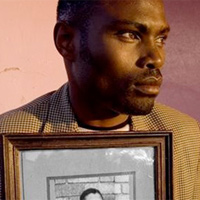
Mandela's Children

25 under 25
|
October 2008
Welcome to the October issue of The Digital Journalist.
by Dirck Halstead
The first thing I do when I buy new equipment is try and figure out how to use it – without consulting any instruction book or manual
by David Leeson
Nikon D700: son of D3 or smarter brother of D300?
by Chick Harrity
In a changing world of journalism, one where gloom often intrudes, I have found a project that gives me hope for the future.
by Ron Steinman
With the election for president almost upon us, the opinionators, known also as talking heads, live on TV and radio or in print, are in the forefront as never before in the history of the media. They are everywhere and impossible to escape.
by Ron Steinman
On a recent trip, I used two different cameras depending upon the circumstances – one, a Canon PowerShot A630 compact digital camera and the other my EOS-1D Mark II digital SLR.
by Chuck Westfall
Theodore Levitt first articulated the idea that many business failures stem from an inability to recognize what business they're actually in. The paper first articulated the oft-repeated claim that if railroads had understood what business they were in, they would have thrived in the new world of buses, trucks and air travel. This is what Levitt calls "failure...at the top."
by Terry Heaton
I was looking for my kids the other day and found them at Tom's, my neighbor across the street. Tom is a bit like Wilson from the old "Home Improvement" show. He rides a recumbent bicycle and knows about nearly everything. As soon as I walked in, Tom handed me a bowl of homemade vanilla-almond ice cream.
by Mark Loundy
Following the dramatic events of September on Wall Street, and the seizing up of the credit markets, there is no doubt that we are heading into a new bleak economic reality. Not only will countless people lose their homes, but also small businesses, such as photography, will be severely impacted.
There's no secret. And I wouldn't be the first to say. But, to me, the best reality show on television, for nearly two years now, has been the race for president. As far as I'm concerned, they should call it "Survivor: The White House."
by Eileen Douglas
In 1975, Steve Sasson, then a new hire at Kodak, recorded a black-and-white digital image with an 8-pound camera that took 23 seconds to record the image onto a digital cassette tape and another 23 seconds to convert the 100 captured lines to 400 and play them back on a conventional television set.
by Bill Pierce
Most days a campaign will put out the same bowl of fruit for us to interpret---accuracy, of course, is paramount---and some will paint it, sculpt it, or wax poetic in the hope of making it more interesting than it looked the day before.
by Stephen Crowley
For October we present a two-in-one dispatch on Hurricane Ike in Galveston, Texas, by Jason Witmer and Johnny Hanson. In the second dispatch, Jeremy Sutton-Hibbert returns to Papua New Guinea to cover the big business of rainforest logging.
by Marianne Fulton
I came expecting to be shocked by the forestry devastation but instead I find myself more shocked by the conditions that the local workers and people live in.
by Jeremy Sutton-Hibbert
The ballroom was shaking, wind was howling, something was banging.
by Jason Witmer Johnny Hanson
There comes a time when enough is enough.
by Beverly Spicer
Five years ago Time photographer Callie Shell met Barack Obama backstage when she was covering presidential candidate John Kerry. She sent her editor more photographs of Obama than Kerry. When asked why, she said, "I do not know. I just have a feeling about him."e;
by Dirck Halstead
|
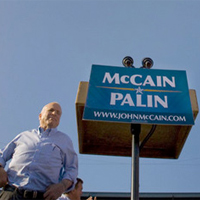
McCain

Obama
|
September 2008
A form of web currency — the price users are required to pay to view, use, consume or interact with web content
by Terry Heaton
The message board at SportsShooter was more like a paintball war during a recent multi-threaded exchange about working for free.
by Mark Loundy
I currently have an EOS 20D DSLR and recently purchased a "refurbished by Canon" EF400mm f/5.6L USM lens. At first I thought it was a soft copy, but after inspecting a few images and doing some testing, I discovered it was a front focus issue (about 1.5 inches at 15 feet and 3 inches at 30 feet).
by Chuck Westfall
In mid-July The New York Times ran an unusual front-page story by Michael Kamber and Tim Arango with the headline, "4,000 U.S Deaths, and a Handful of Images." It was about news coverage in Iraq and its failings. The words were direct, the outrage carefully parsed.
by Ron Steinman
Kashmir, a remote land that lies between India and Pakistan, has been in the news of late as violence between Muslims and Hindus flares there yet again.
by Eileen Douglas
This month we have four timely dispatches
Rajman said no faces could be caught on film or tape and that shooting time would be limited to just an hour.
by Jason Motlagh
Although the sides of the tent were open, a profound smell of dust, sweat and vegetables cooked in oil in pans was filling the air.
by Tarik Tinazay
The start of a war is a little like the early stages of a romantic relationship: always intense and inclined to make people too likely to believe the things they hear even when they have the experience to know better.
by Chris Hondros
Throughout the time of the Olympics I felt uptight about all the different types of security guards.
by Jean Chung
Surrender your egos. That was all Dirck Halstead and PF Bentley asked of us on the first night of the Platypus Workshop in Rockport, Maine.
by Susan Sterner
In 2004, I covered the Republican Convention in New York City. With all the controversy and protests that marked that convention, it was a visually rich experience both inside Madison Square Garden and out, eventually leading to my book, "The Republicans."
by Steve Simon
One thing that I have discussed a fair bit, and that I've been able to confirm with two colleagues who each have more than 10 Olympics under their belts, is a lack of "joy" that we felt in these games.
by Vince Laforet
|
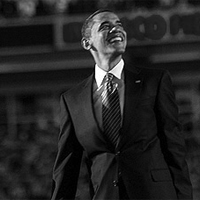
The Conventions
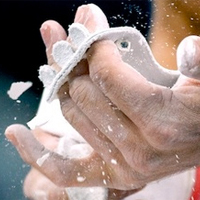
Beijing Olympics
|
August 2008
Welcome to the August issue of The Digital Journalist, the monthly online magazine for visual journalism.
by Dirck Halstead
As the disruption to the mass media business models of traditional media becomes more acute, more and more veteran journalists are beginning to ask how the business of news will be funded.
by Terry Heaton
As anybody who has filled up his or her SUV recently, and watched the cost to do so rise to over $100, is painfully aware, a part of our daily ritual has become prohibitively expensive.
by Dirck Halstead
Could you please clarify the operation of Mode 2 (panning) IS on the Canon EF70-200mm f/2.8L IS USM lens?
by Chuck Westfall
Many photographers picked up cameras because they don't like to write or aren't very good at it.
by Mark Loundy
Some might think it is a minor story, but people in Waukesha, Wis., are actually losing sleep over it
by Karen Slattery and Mark Doremus
Ever on the crest of a positive wave, creators Rick Smolan and Jennifer Erwitt of Against All Odds Productions have recently published two of their most fascinating and socially relevant books yet
by Beverly Spicer
Once again, first things first before we get to the techy talk.
by Bill Pierce
It is not always possible to see changes even when they stare you in the face.
by Ron Steinman
There are endless ways to think about photographs.
by Ron Steinman
I was 24 years old and tired of photographers when I met Walter for the first time.
The last day of July saw an interesting sequence of events reminiscent of last September in Myanmar when the military junta shut down the Internet, disallowing information to flow through cyberspace.
by Beverly Spicer
Not since Yitzhak Rabin's funeral has Israel hosted as many senior officials from abroad as it has this year.
by Rafael Ben-Ari
This month California wildfires are still in the news. The good news is that most have been contained and are under control – for now.
During the day I worked to the rhythm of Charlie Company that was ultimately tied to the desert and its unrelenting heat.
by David Bathgate
Almost anywhere you would want to photograph there was a danger of getting picked up either by the police or harassed by Zanu-PF supporters or war veterans.
by Will Baxter
Gold fever is infectious in the Brazilian Amazon Rainforest. The forest is destroyed to dig gold mines and I wanted to see what was happening.
by Philip Poupin
Never-ending home construction in habitat that is based on a cycle of fire and re-growth, generations of heavy fire suppression, and years of worsening drought conditions conspire to create ever more dangerous fire conditions.
by David McNew
|

Athlete
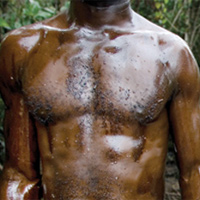
Curse of the Black Gold
|
July 2008
Welcome to the July issue of The Digital Journalist, the monthly online magazine for visual journalism.
by Ron Steinman
Is it not self-evident that every human being has an inalienable right to avoid unwanted messages?
by Terry Heaton
It was Wednesday evening, May 28, and I was sitting by myself at Eric Ericsson's restaurant on the Ventura pier in Ventura, Calif., after a short walk on the beach to clear my head.
by John Gibbins
Is there a list somewhere that mentions whether a Canon IS lens has tripod-sensing capabilities?
by Chuck Westfall
July 2020. Broadcast anthropologists recently discovered a time capsule placed in the ground beneath the skating rink at 30 Rockefeller Plaza in Manhattan.
by Ron Steinman
A poster on Craigslist was looking for workers to perform a number of tasks around his house.
by Mark Loundy
We, like so many television viewers, were deeply saddened to learn of the passing of NBC's "Meet the Press" host Tim Russert last month.
I have a special place in my heart for photographers who occasionally get shot at, even though a Marine in Beirut once said to me, "You're crazy; you don't have to be here." Truth is, I never thought it was crazy to be one of the journalists covering one of the most important, sadly never-ending, stories of all time – wars – rather than photographing celebrity talking heads.
by Bill Pierce
This month we have two stories that are on a, sadly, very current and important subject: the food crisis.
by Marianne Fulton
The poor do not need reminding that they are poor nor do they equate journalism with its' potential to solve society's problems.
by Scott Nelson
The rest of the trip was spent in similar fashion, desperately trying to get access and then at the last minute getting what I needed.
by Justin Mott
People in the publishing industry are starting to obsess about the evolution/devolution of the newspaper and magazine industry, and the future of print media.
by Beverly Spicer
Each year there are a host of images made by photojournalists all over the world, and each year, a select few are honored by organizations such as Pulitzer, the Overseas Press Club, World Press Photo and other professional institutions.
by Beverly Spicer
|

John Moore
|
June 2008
Welcome to the June issue of The Digital Journalist, the monthly online magazine for visual journalism.
A question regarding the EOS-1D Mark II and Speedlite 580EX.
by Chuck Westfall
When the Internet bubble burst early in the new millennium, many smart people learned the harshest of all business lessons: when the money's gone, there is no business.
by Terry Heaton
Errol Morris' latest film, Standard Operating Procedure about the abuse of prisoners at the Abu Ghraib prison in Iraq, is at times brilliant, infuriating, tedious, at one hour and 57 minutes far too long, boring, with high-end graphics that are far too slick, looking as if they are from an expensive television commercial.
by Ron Steinman
Photojournalist Flip Schulke (1930-2008), known for his underwater photography, covered a wide range of subjects but his best-known, historically-important work was of Martin Luther King, Jr. and the civil rights era.
by Marianne Fulton
Remember the scene in The Perfect Storm where George Clooney and his crew had sailed through meteorological purgatory and survived only to encounter a gi-normous wave, which sends the boat to the bottom?
by Mark Loundy
As readers of The Digital Journalist are well aware, we have been a staunch supporter of photographers' copyright since our first issue.
I was in Washington a few weeks ago at the annual awards dinner of the White House News Photographers Association.
by James Colburn
Often, as photojournalists, we don't have the control over the subject that, say, a commercial photographer in a studio might have.
by Bill Pierce
By any formal definition, Bill Eppridge may not be a Boomer, and I'm not sure that even Boomers are required to accept the Sixties as halcyon days, but I'd challenge anyone to find a photographer better attuned to those times.
by Barbara Baker Burrows
I'm writing this from Ventura, Calif., where in 48 hours, the 25th Platypus Workshop will commence and I'll be brain dead in a few days.
by PF Bentley
This month we have three Dispatches: Adam Dean covers the earthquake in China, David Bathgate goes to Checkpoint Delta in Afghanistan with American soldiers and, in Iran Ali Shirjian considers the importance of a now-sacred battleground of the Iran-Iraq War.
by Marianne Fulton
On the ground, the ruggedness of the Hindu Kush leaves little doubt that one could easily hide here or fail to secure and control its perimeter.
by David Bathgate
...it seemed to me as if their loved ones had just departed, not some 18 years ago with the end of the war.
by Ali Akbar Shirjian
The first day I headed straight for Beichuan County a small town a few hours drive from Chengdu which was one of the worst effected areas.
by Adam Dean
I've been thinking a lot lately about things like synchronicity, spontaneous combustion, chain reactions, gravitation, and other such phenomena in physics and chemistry but that also occur metaphorically on every level of existence.
by Beverly Spicer
It really was a lovely funeral.
by Peter Howe
Three days of driving rain had already begun to ruin the dry season rice harvest, leaving the crop under water, before I returned to Yangon from Bago on the day the cyclone struck.
by James Whitlow Delano
|
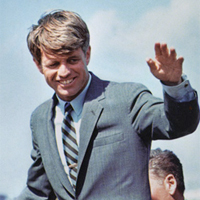
A Time It Was
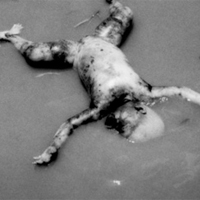
In the Eye of the Myanmar Cyclone
|
May 2008
May is truly our Memorial Day issue. We celebrate the veterans of World War II, and pay tribute to four of the world's finest photojournalists who were killed in 1971 over Laos.
by Dirck Halstead
The Band of Brothers came together on April 3 to put to final rest the remains of four of their own, killed more than 37 years ago when the helicopter carrying them into Laos was downed by North Vietnamese gunfire.
by Dirck Halstead
Slowly but surely the path that leads to journalism's future is increasingly one of participation by the people formerly known as the audience.
by Terry Heaton
This month's edition of Tech Tips marks the 3rd anniversary of the column here on The Digital Journalist. A hearty thanks to Dirck Halstead, Cecilia and Connie White, Mark Wilkie, and others who make this Web site possible month in and month out, and as always an especially warm thank you to all of our readers, especially those who have taken the time to send in their questions and comments.
by Chuck Westfall
No news source should be able to dictate what a news organization can publish or broadcast from a news story.
by Mark Loundy
I reviewed HP's first 13" x 19" pigment ink printer, the Photosmart Pro B9180, a little over a year ago and was impressed with both its print quality and its price point.
by Chick Harrity
That guideline emphasizes the important role that emotion plays in photojournalism. Proof that the professionals follow their own advice is evident in award-winning photographs.
by Karen Slattery and Mark Doremus
Weeks ago I read a chilling, real-life story about a journalist – a star journalist no less--which any journalist born to the game would find frightening.
by Eileen Douglas
The Digital Journalist was probably the first publication to start talking about how newspapers would need to migrate their brand to the Web, and the key element was going to be with video.
Do you remember when we used to get all our photographic craft and technical info from magazines? A nearby bookstore has an exceptionally large display of photo magazines. Almost all of them seem to feature the same articles.
by Bill Pierce
Wake up on any given day and you might see the face of Katie Couric on the morning TV shows, on the Internet and in your newspaper.
by Ron Steinman
Today, because of its speed, the Internet, as radio once did, has within it the power to change lives and peoples' destiny. Repressive governments seem powerless to stop access to the Web.
by Ron Steinman
With some 111,000 attendees, the annual convention of the National Association of Broadcasters is the second largest convention to be held in Las Vegas each year, behind the Consumer Electronics Show.
by Dirck Halstead
It's the biggest toy store in the world. But this one is for adults who won't blink an eye at dropping a couple of million bucks on the latest satellite truck or news helicopter. PF Bentley and Dirck Halstead spent four days trudging the miles between the four huge halls at the Las Vegas Convention Center looking for the newest, the most impressive, and even the most bizarre items on display.
Hello, I'm Tim Robbins. I'd like to thank you for the invitation to address you here at the National Association of Broadcasters. When I first received the invitation I was a little confused because the last time I had contact with the national media I seem to remember them telling me to shut the hell up.
by Tim Robbins
The world recently lost one of its most celebrated thinkers. Theoretical physicist John Archibald Wheeler was with us until April 13, when at age 96 he took his last breath and no doubt embraced whatever is next in a style only a theoretical physicist, a mystic, or someone who thinks outside the box could. I wish he could send a report on his final observations, as we have only our imaginations and sparse evidence to formulate even an educated guess. John Wheeler is gone, but likely will not be forgotten anytime soon.
by Beverly Spicer
This month in Dispatches Chip Somodevilla looks at American Catholics and their welcome of Pope Benedict XVI, Andrew McConnell reports on the continuing calamity in the Democratic Republic of the Congo and Stewart Cook brings us face to face with the Canadian seal hunt.
by Marianne Fulton
cook/thumb.jpg
by Stewart Cook
Looking at certain maps of Africa, especially those produced in the last century, you'd be forgiven for thinking that the Congo actually had something resembling a decent road network.
by Andrew McConnell
She closed the book after praying and singing with her sisters and turned her eyes back to the street in hopes of catching a glimpse of the holiest man she knows.
by Chip Somodevilla
In this age of cheap patriotism, when the greatest war sacrifice most of us makes is the damage caused to our clothing through pinning on little flags, it's good to be reminded this Memorial Day that it wasn't always so.
by Peter Howe
|
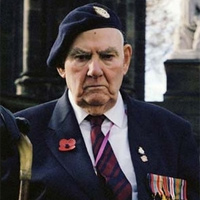
The Veterans
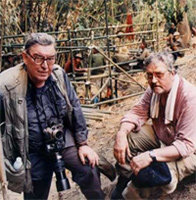 Interment of the
Interment of the
Fallen Four
|
April 2008
HD Storytelling for Journalists, Photojournalists, Editors and Producers
During the Vietnam War, I was stationed at a long-range navigation base in the Philippines with 15 other guys.
by Terry Heaton
Welcome to the April issue of The Digital Journalist, the monthly magazine for visual journalism.
by Dirck Halstead
I'm in Norman, Oklahoma, for The NPPA News Video Workshop. I really don't know what to expect, as there seems to be some sort of informational blackout when it comes to The Workshop.
by Todd Feeback
My understanding is that the focus screen needs to be optimized for the AF system and the amount of light being passed to my eye is not accurate at wider apertures in regards to the actual depth of field (DOF).
by Chuck Westfall
Verbiage should be the theme of the current campaign for president. Not the horse race. Not the gotcha moments. Not anything else anyone can name.
by Ron Steinman
Mark the date, the time, the place and the broadcast, especially if you are interested in the political future of our country.
by Ron Steinman
My 8-year-old daughter is going through a difficult period with her numbers. I had the same problem when I was her age. She is answer-driven.
by David Lyman
Inequality of knowledge is the key to a sale.
by Mark Loundy
It happens all too frequently. Someone in cyberspace rips off the photos and words we create.
Philip Jones Griffiths died last month of cancer. He lived with it for a long time and did so without self-pity.
by Bill Pierce
Hope springs eternal, and every spring, a young man's fancy turns to NAB.
by PF Bentley
We arrived in a water taxi. Scott had his backpack full of gear, his camera in hand. I was hauling the tripod. A Kachemak Bay State Park Ranger was joining us for the hike from the bay to the Grewingk Glacier.
by Megan Baldino
In April we have three dispatches and an Update. The dispatches go around the world: Stephen Voss comments on his experience of the McCain presidential campaign in the U.S.A.; Danish photographer Carsten Snejbjerg reports on the internally displaced persons in Georgia at the moment when President George Bush is traveling in the region to promote Georgia's membership in the 59-year-old NATO Pact; Rafael Ben-Ari, an Israeli photojournalist, returns with his coverage of the missile attacks from the Gaza Strip deeper into Israel. In our Update, John Gilhooley writes of more adventures within the music and culture of Los Angeles.
by Marianne Fulton
Ain't gonna happen, man. Everybody wants a piece of Rampage
by John Gilhooley
That day at least 20 missiles were fired from Gaza at Ashkelon.
by Rafael Ben-Ari
The refugees found places to live in shut down army barracks, schools and hotels and, unfortunately, most still live there.
by Carsten Snejbjerg
Above the senator was a dive-bomber from WWII and on either side of him were veterans and Boy Scouts.
by Stephen Voss
If you knew Wales, you knew Philip Jones Griffiths. To the end of his life he remained true to his Welshness, which defined him with a power that few environments exert. Both he and his birthplace are rife with contradictions.
by Peter Howe
When great minds get organized, and especially when they connect with each other, there is no limit to what can emerge, and it seems the result can go in either direction.
by Beverly Spicer
|

Philip Jones Griffiths
In Memorium
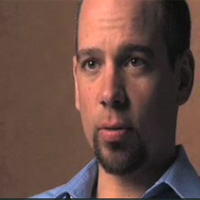 Scott Jensen:
Scott Jensen:
NPPA TV Photographer of the Year
|
March 2008
Welcome to the March issue of The Digital Journalist, the monthly online magazine for visual journalism.
by Dirck Halstead
Great Photographic Destinations of the World
I was curious about the advantage, if any, of UDMA compact flash cards (such as the SanDisk Extreme IV series) versus slower non-UDMA cards on Canon cameras other than the 1Ds Mark III, the only Canon camera to support UDMA.
by Chuck Westfall
Ted Landsmark's office is crowded with images. President of the Boston Architectural College, Landsmark, who holds a law degree as well as a doctorate in American Studies, is a student of African-American culture.
by Louis P. Masur
At long last: Nikon's first full-frame camera with a 36 X 23.9mm CMOS sensor that produces amazing quality images from ISO 200 to IS0 6400.
by Chick Harrity
Getting close to a person in order to make a photo, to tell their story, is less a matter of photography and more a matter of being a human being.
by David Lyman
When I was just a pup, J. Paul Getty was a reclusive American billionaire who had made most of his money in oil.
by Mark Loundy
Another murderer taken off the street. Another case resolved.
by Jim Gabour
Glen Mabie is still looking for work.
by Karen Slattery and Mark Doremus
In still photography you shoot from your heart. With video you shoot from your head. You have to think it out first.
by Doug Plummer
A New Beginning - The Platypus Workshop, Winter 2008
Jacob The Survivor - Playtpus Workshop, Winter 2008
Jimmy Foster - Guitar Man: Playtpus Workshop, Winter 2008
These represent the 25th and 26th workshops we have conducted since the program began in 1999.
by Dirck Halstead
While Hillary and Obama were fighting it out for the crucial Texas vote, The Platypus Workshops charged across The Lone Star state and into Louisiana in February, as it conducted back-to-back workshops teaching video to photojournalists who came from as far away as New Zealand.
The year is 1939. Robert Capa is in Paris. All of France is under siege by the Nazi hoard. Paris is about to fall.
by Ron Steinman
Suddenly the Leica was a conspicuous consumption item. People talked about the softness of the leather covering.
by Bill Pierce
In March we present four timely archive_headlineches that span the brutal to the beautiful. Both Danfung Dennis and Alex MacNaughton look at the bloody confrontations in Kenya. Derek Flood was in Pakistan for the recent elections and Lisa O'Connor hurried and waited, hurried and waited to photograph the Oscars.
by Marianne Fulton
Getting to my spot on the red carpet at the Kodak Theatre at Hollywood and Highland is a bit like running an obstacle course.
by Lisa O'Connor
Decades of swinging from feudal democracy to blunt dictatorship have left people here beyond cynicism.
by Derek Henry Flood
I stand in the shade outside the Catholic Church in Kisumu waiting for the march for peace to set off.
by Alex MacNaughton
Any minute now the Kenyan paramilitary General Service Unit was going to charge the mob of protesters in the Kibera slum of Nairobi.
by Danfung Dennis
In 2004 Editor/Publisher Dirck Halstead asked me if I wanted to write a column for The Digital Journalist he would name E-Bits, consisting mostly of what he called the "flotsam and jetsam" of the World Wide Web.
by Beverly Spicer
McClellan Street in Fort Wayne, Indiana, a three-block-long street just on the edge of the downtown area of one of America's heartland industrial cities, is far away from where I am sitting as I write this in Paris, and a great distance from a world three decades later that includes instantaneous e-mail exchanges, 24-hour cable television, and a certain global modernism that makes things begin to look the same almost wherever one goes.
by Peter Turnley
At the tail end of the late Sixties, a generation was in the streets protesting the war in Vietnam.
by David Turnley
|

McClellan Street
 2008 Platypus Theater
2008 Platypus Theater
|
Febuary 2008
The photographic realm has just lost two giants with the deaths of Popular Photography's Burt Keppler and, now, of Henry Froehlich, former head of medium-format mainstay Mamiya America.
Retired Los Angeles Times photojournalist Bernard "Bernie" Boston, 74, a two-time Pulitzer Prize finalist and an NPPA Life Member, died today at his home in rural Virginia.
It's a new year, a new look for The Digital Journalist and time for some cool new gear to talk about. Let's get to it.
by PF Bentley
I hate to admit this. The day Benazir Bhutto was murdered, I realized it then.
by Eileen Douglas
I have a problem with a Mark III used with a 17-35 f2.8 and a 550EX flash in dark situations.
by Chuck Westfall
Digital Forensics. Think of that phrase. It could be the title of a new TV crime show.
by Ron Steinman
So they're grabbing your usage rights. Fees haven't gone up in a couple of decades. Oh, woe is me!
by Mark Loundy
We got our first television set in 1952 when I was six years old. I had a kidney disease and was bedridden, so the new invention became my friend. Radio held me in its grip with super heroes and Western dramas, but TV made me smile.
by Terry Heaton
Lundi Gras – the Fat Monday before Fat Tuesday -- dawns dry and perfectly blue, though dampened by official predictions of storms and fluctuating temperatures on the Big Day.
by Jim Gabour
The figure in the photograph is clad in Army fatigues, boots and helmet, lying on his back in peaceful repose, folded hands holding a military cap. Except for a thin trickle of blood from the corner of his mouth, he could be asleep.
It started as a disturbance in the infinite void of cyberspace.
A psychotic rain pounds the windshield. We can't see the hood of the car, much less the road. An 8-year-old boy squints for a better look at the sky through the passenger window.
by Jim Reed
For February we have two stories about the death of Benazir Bhutto. The first, by John Moore, and the second by Photographer Adam Dean. The third archive_headlinech, by Spencer Platt, is from a place known as...
by Marianne Fulton
With no electricity outside of the capital and virtually no paved roads, it is a land abandoned.
by Spencer Platt
The dispersing crowd and thinning smoke revealed the hideous aftermath of the bomb
by Adam Dean
But when I heard a cheer erupt, I turned around, and there she was.
by John Moore
In "Man and Superman," (1903) George Bernard Shaw named two tragedies in life: one is not to get your heart's desire.
by Beverly Spicer
Henry Froehlich was a very close friend for the past 20 years and rarely did a week go by without us talking to each other.
by Douglas Kirkland
We have fun, don't we
by Françoise Kirkland
What this book represents to me is a look across the history of a dreamer with the camera. I saw the instant over and over again since boyhood.
by Douglas Kirkland
I don't know if Douglas Kirkland has ever thought of becoming a director, but all his images contain the rich, contradictory synthesis of the stills from a successful film.
by Cristina Comencini
With the introduction of the new Digital Journalist Web design, this is the Happy New Year of the DJ. So, I'm listing a few of my New Year's resolutions.
by Bill Pierce
Welcome to the February issue of The Digital Journalist, the online magazine for visual journalism.
by Dirck Halstead
|
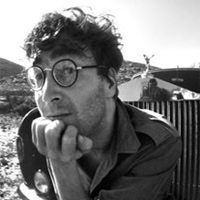
Douglas Kirkland:
"Freeze Frame"
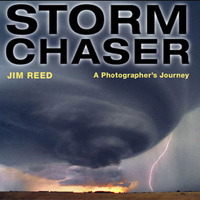
|
January 2008
The Best Of The Digital Journalist. Welcome to a special issue of The Digital Journalist.
|
`

|
|
|
|
|